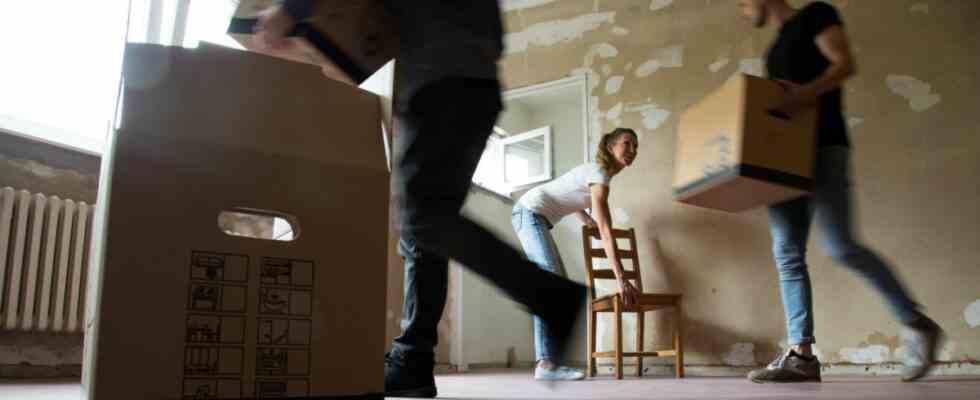Buy or not? Right now or is it better later? Small in the city or with space out in the country? The decision for or against your own property has never been easy. For a few months, however, the matter has seemed clear, unfortunately: Own home, that can not be. The purchase prices are still at record levels, but interest rates have risen enormously at the same time, and building your own has also become extremely expensive. Nobody can pay for that anymore.
That’s right. In and around cities like Munich, Berlin or Hamburg, Cologne, Düsseldorf or Frankfurt, the situation seems to be pretty hopeless – at least for everyone without rich ancestors or very successful careers. Maybe the purchase prices will even fall a bit in the coming months, but the bottom line is that hardly any observer believes that it will really get cheaper for buyers. Interest rates have risen too much in recent months. So many in the so-called middle of society are preparing to pay rent for life. The proportion of people in owner-occupied housing is already nowhere in the EU as low as in Germany: Half the country lives for rent.
Buy today, sell again at some point – why not?
The only alternative often seems to be to inherit debts. With the prices and interest rates, fewer and fewer can pay for a house in a working life. But this is an idea that scares many. It doesn’t fit with what parents and grandparents usually set an example: in the end you should have more than just lousy. If that doesn’t work, you’re not allowed to buy anything, that’s how many people still see it. This strange German all-or-not-at-all mentality does more harm than good.
Of course it is right to be careful with credit. But who says a house or apartment has to be a lifetime project? The demand for living space is high – and it will probably remain so, especially in the metropolitan areas. So why not buy the four-room apartment today and sell it again in a few years? Of course, it has become much more expensive to finance a property. But if you see the house or apartment as a station in life and not as its purpose, you calculate differently: You service the loan for 20 years instead of the landlord and then sell it again. The property has probably increased in value in the meantime, ideally even more than the purchase and loan cost together. Then you have not only lived for 20 years, but also invested your money profitably.
Thinking this way can not only be financially attractive, but also socially and ecologically. Because after 20 or 30 years, many properties are too big anyway, their aging residents struggle with the many rooms and the large garden, at the same time the young cannot find a suitable place to stay for themselves and their families. So some of them move even further out into the country, build new ones there and then regularly commute to work in the city. So while many houses and apartments are actually half empty, one new development area after the other is emerging, more and more areas are being sealed, and more and more cars are rolling into the centers over ever-widening streets. And the other part of the younger generation, who stays in the cities or at least nearby, pays more and more rent for fear of debt. So instead of building up your own property and fortune – even if it’s just a small one – at best you wait for the inheritance of your parents and grandparents in their big houses. And is annoyed that only the others are making money from the constantly rising rents.
But if it’s pointless to keep recreating the homes of your parents and grandparents, and if it’s hopeless to spend your life paying higher and higher rents out of fear – what then? Then the mentality and politics have to change: More people have to go into their own homes, but more people have to get out again. The ideal for life should no longer be the one new building on the green field, but the right apartment for every phase. And what no longer fits is sold. Others are much further along, Italians or Spaniards for example, as well as Finns and Dutch. The Germans could certainly learn a lot from that.

